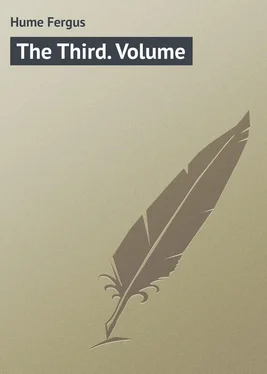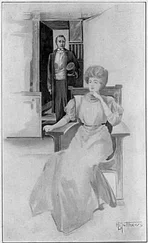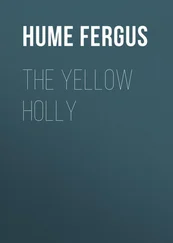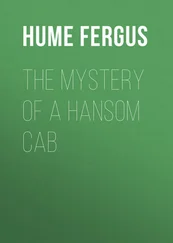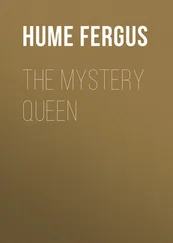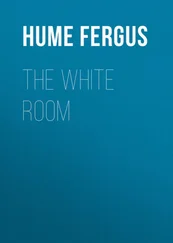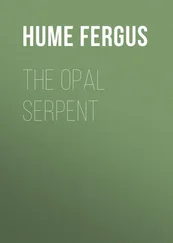Fergus Hume - The Third. Volume
Здесь есть возможность читать онлайн «Fergus Hume - The Third. Volume» — ознакомительный отрывок электронной книги совершенно бесплатно, а после прочтения отрывка купить полную версию. В некоторых случаях можно слушать аудио, скачать через торрент в формате fb2 и присутствует краткое содержание. Жанр: foreign_prose, на английском языке. Описание произведения, (предисловие) а так же отзывы посетителей доступны на портале библиотеки ЛибКат.
- Название:The Third. Volume
- Автор:
- Жанр:
- Год:неизвестен
- ISBN:нет данных
- Рейтинг книги:3 / 5. Голосов: 1
-
Избранное:Добавить в избранное
- Отзывы:
-
Ваша оценка:
- 60
- 1
- 2
- 3
- 4
- 5
The Third. Volume: краткое содержание, описание и аннотация
Предлагаем к чтению аннотацию, описание, краткое содержание или предисловие (зависит от того, что написал сам автор книги «The Third. Volume»). Если вы не нашли необходимую информацию о книге — напишите в комментариях, мы постараемся отыскать её.
The Third. Volume — читать онлайн ознакомительный отрывок
Ниже представлен текст книги, разбитый по страницам. Система сохранения места последней прочитанной страницы, позволяет с удобством читать онлайн бесплатно книгу «The Third. Volume», без необходимости каждый раз заново искать на чём Вы остановились. Поставьте закладку, и сможете в любой момент перейти на страницу, на которой закончили чтение.
Интервал:
Закладка:
"Should it be so, you will always have at least one friend to stand by you."
"Thank you, Tait," replied Larcher, grasping the outstretched hand. "Should the time come for testing your friendship, I shall have no hesitation in putting it to the proof. And the time is coming," added he, tapping the pocket which held the letter, "of that I am certain."
"What about our theater to-night?" demanded Tait dubiously.
"It all depends on my interview with Hilliston."
Tait said nothing at the moment, and shortly afterward they parted, Larcher to seek his guardian in Lincoln's Inn Fields, Tait to return to his chambers.
"Humph!" said the latter thoughtfully, "there will be no theater for us to-night. I don't like the look of things at all. The deuce take Margaret Bezel!"
CHAPTER III
THE REVELATION OF FRANCIS HILLISTON
Once upon a time popular imagination pictured a lawyer as a cadaverous creature, arrayed in rusty black, with bulging blue-bag, and dry forensic lore on his tongue. So was the child of Themis represented in endless Adelphia farces; and his moral nature, as conceived by the ingenious playwright, was even less inviting than his exterior. He was a scamp, a rogue, a compiler of interminable bills, an exactor of the last shilling, a legal Shylock , hard-fisted and avaricious. To a great extent this type is a thing of the past, for your latter-day lawyer is an alert, well-dressed personage, social and amiable. Still he is looked on with awe as a dispenser of justice, – very often of injustice, – and not all the fine raiment in the world can rob him of his ancient reputation: when he was a dread being to the dwellers of Grub Street, who mostly had the task of limning his portrait, and so impartial revenge pictured him as above.
All of which preamble leads up to the fact that Francis Hilliston was a lawyer of the new school, despite his sixty and more years. In appearance he was not unlike a farmer, and indeed owned a few arable acres in Kent, where he played the rôle of a modern Cincinnatus. There he affected rough clothing and an interest in agricultural subjects, but in town in his Lincoln's Inn Fields' office he was solemnly arrayed in a frock coat with other garments to match, and conveyed into his twinkling eyes an expression of dignified learning. He was a different man in London to what he was in Kent, and was a kind of Dr. Jekyll and Mr. Hyde for moral transformations. On this special occasion frock-coated legality was uppermost.
Yet he unbent for a moment or so when receiving Claude Larcher, for childless himself, the young man was to him a very Absalom; and he loved him with an affection truly paternal. No one can have the conduct of a child up to the age of twenty – at which period Claude made his début in the engineering world, without feeling a tugging at the heart strings. Had Larcher been indeed his son, and he a father in place of a guardian, he could have scarcely received the young man more warmly, or have welcomed him with more heartfelt affection.
But the first outburst over, and Claude duly greeted and seated in a convenient chair, Mr. Hilliston recurred to his legal stiffness, and, with no smile on his lips, sat eyeing his visitor. He had an awkward conversation before him, and was mentally wondering as to the best way of breaking the ice. Claude spared him the trouble by at once plunging headlong into the subject of Margaret Bezel and her mysterious letter.
"Here you are, sir," said he, handing it to his guardian. "I have brought the letter of this woman with me as you wished, and I have also abstained from seeing her in accordance with your desire."
"Humph!" muttered Hilliston, skimming the letter with a legal eye, "I thought she would write."
"Do you know her, sir?"
"Oh, yes!" said the other dryly. "I know her. But," he added after a thoughtful pause, "I have not set eyes on her for at least five-and-twenty years."
"Twenty-five years," repeated Claude, thoughtful in his turn. "It was about that time I came into your house."
Hilliston looked up sharply, as though conceiving that the remark was made with intention, but satisfied that it was not from the absent expression in Larcher's face, he resumed his perusal of the letter and commented thereon.
"What do you think of this communication, Claude?"
"I don't know what to think," replied the young man promptly. "I confess I am curious to know why this woman wishes to see me. Who is she?"
"A widow lady with a small income."
"Does she know anything of my family?"
"Why do you ask that?" demanded Hilliston sharply, and, as it seemed to Claude, a trifle uneasily.
"Well, as I am a stranger to her, she cannot wish to see me on any personal matter, sir. And as you mention that you have not seen her for five-and-twenty years, about which time my parents died, I naturally thought – "
"That I had some object in asking you not to see her?"
"Well, yes."
"You are a man of experience now, Claude," said Hilliston, with apparent irrelevance, "and have been all over the world. Consequently you know that life is full of – trouble."
"I believe so; but hitherto no trouble has come my way."
"You might expect that it would come sooner or later, Claude. It has come now."
"Indeed!" said Larcher, in a joking tone. "Am I about to lose my small income of five hundred a year?"
"No, that is safe enough!" answered Hilliston abruptly, rising to his feet. "The trouble of which I speak will not affect your material welfare. Indeed, if you are a hardened man of the world, as you might be, it need affect you very little in any case. You are not responsible for the sins of a former generation, and as you hardly remember your parents, cannot have any sympathy with their worries."
"I certainly remember very little of my parents, sir," said Larcher, moved by the significance of this speech. "Yet I have a faint memory of two faces. One a dark, handsome face, with kind eyes, the other a beautiful, fair countenance."
"Your father and mother, Claude."
"Yes. So much I remember of them. But what have they to do with Margaret Bezel – or Mrs. Bezel, as I suppose she is called? Why does she want to see me?"
"To tell you a story which I prefer to relate myself."
"About whom?"
"About your parents."
"But they are dead!"
"Yes," said Hilliston, "they are dead."
He walked about the room, opened a box, and took out a roll of papers, yellow with age. These were neatly tied up with red tape and inscribed "The Larcher Affair." Placing them on the table before him, Hilliston resumed his seat, and looked steadfastly at his ward. Claude, vaguely aware that some unpleasant communication was about to be made to him, sat silently waiting the words of ill omen, and his naturally fresh color faded to a dull white with apprehension.
"I have always loved you like a son, Claude," said Hilliston solemnly, "ever since you came to my house, a tiny boy of five. It has been my aim to educate you well, to advance your interests, to make you happy, and above all," added the lawyer, lowering his voice, "to keep the contents of these papers secret from you."
Claude said nothing, though Hilliston paused to enable him to speak, but sat waiting further explanation.
"I thought the past was dead and buried," resumed his guardian, in a low voice. "So far as I can see it is foolish to rake up old scandals – old crimes."
"Crimes!" said Claude, rising involuntarily to his feet.
"Crimes," repeated Hilliston sadly. "The time has come when you must know the truth about your parents. The woman who wrote this letter has been silent for five-and-twenty years. Now, for some reason with which I am unacquainted, she is determined to see you and reveal all. A few months ago she called here to tell me so. I implored her to keep silent, pointing out that no good could come of acquainting you with bygone evils; but she refused to listen to me, and left this office with the full intention of finding you out, and making her revelation."
Читать дальшеИнтервал:
Закладка:
Похожие книги на «The Third. Volume»
Представляем Вашему вниманию похожие книги на «The Third. Volume» списком для выбора. Мы отобрали схожую по названию и смыслу литературу в надежде предоставить читателям больше вариантов отыскать новые, интересные, ещё непрочитанные произведения.
Обсуждение, отзывы о книге «The Third. Volume» и просто собственные мнения читателей. Оставьте ваши комментарии, напишите, что Вы думаете о произведении, его смысле или главных героях. Укажите что конкретно понравилось, а что нет, и почему Вы так считаете.
